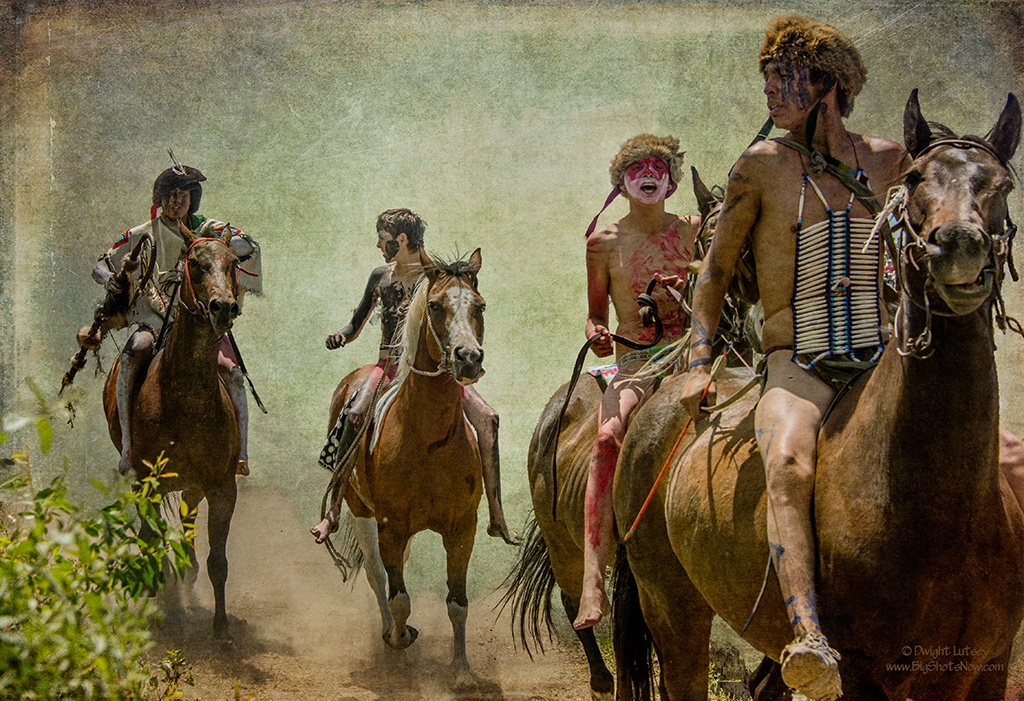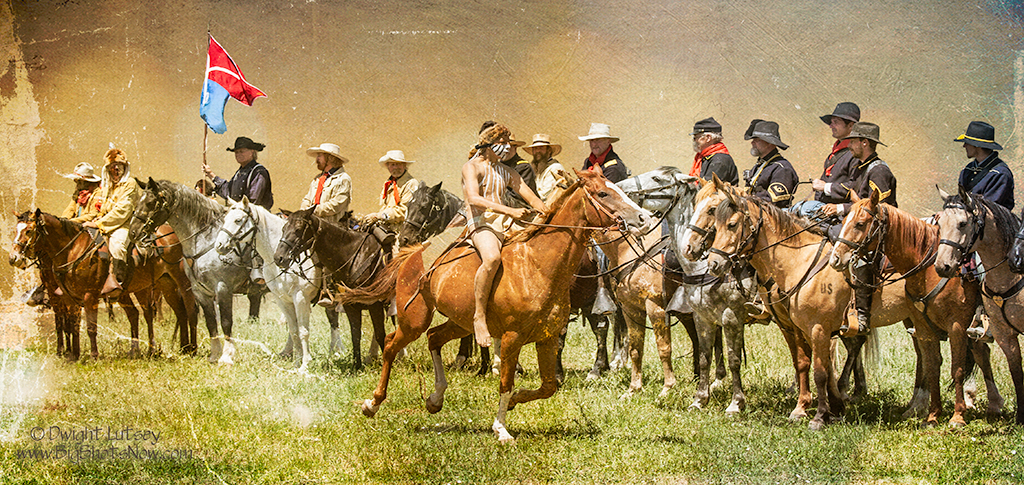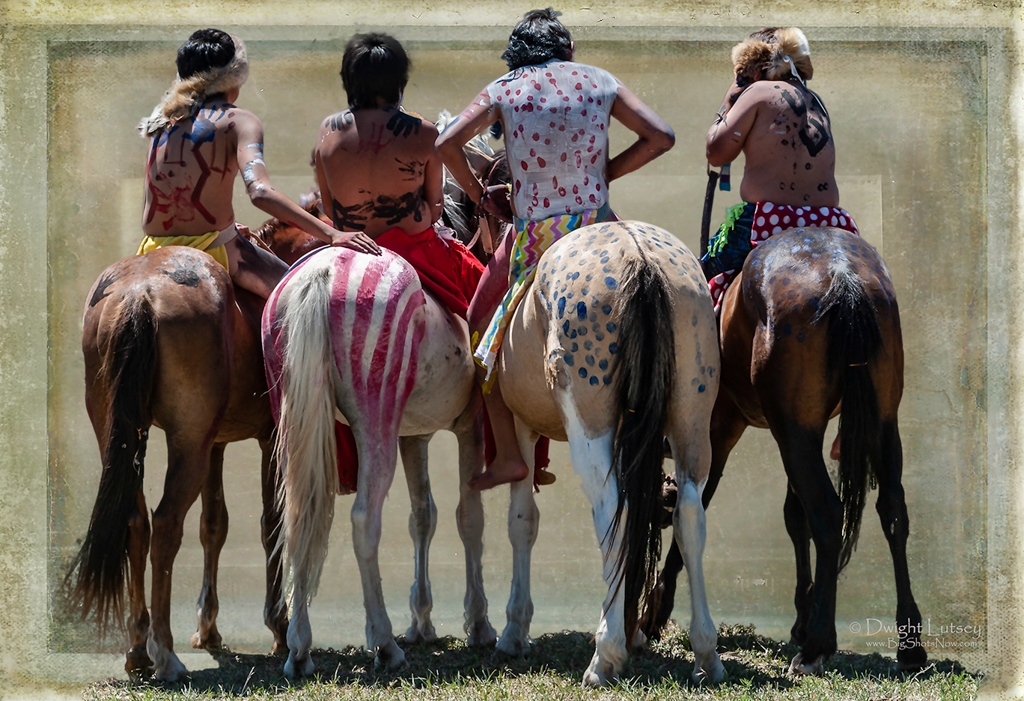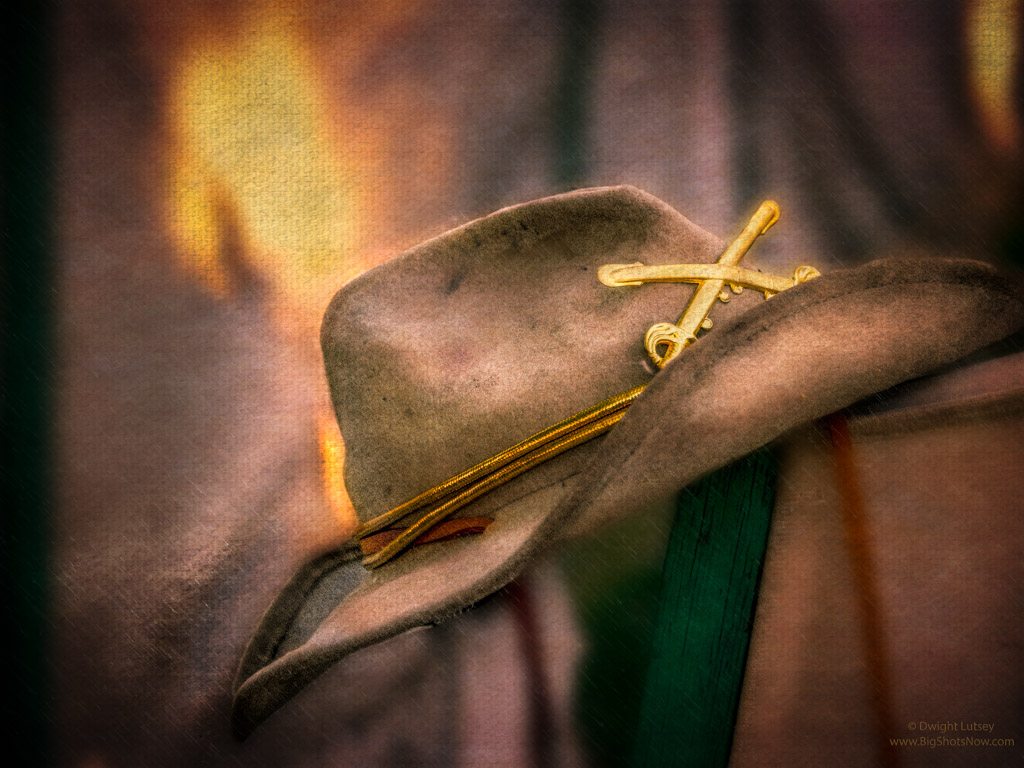
In the excitement of battle, the dust swirls up obscuring visibility, the sounds of the fighting seem to come from every direction, the eagerness on the part of these young men to enter the action, all play into the frenzy of making war. These young warriors are desperate to join the others and the fighting and are terrified they won’t get to take part in it before its over. The possibility to leave their youth behind and enter manhood as a respected battle proven warrior is their single driving force. This is their chance to make a name for themselves and gain honor by engaging the enemy. If they can only find them.
The battle is spread over a large area and the different engagements that make it up are constantly moving as fortunes shift and events unfold. It can be confusing trying to enter the action especially if your desire is to get up close to the enemy so you can fight them face to face, thereby winning much honor and the right to boast of your prowess to anyone who will listen. To be taken seriously as warriors not just untested young men. A very important thing to young men trying to move up in the warrior society. Every opportunity missed is an obstacle to their advancement.
As destiny would have it these young men barely out of their childhood will find the battle, and will find out what their future holds. Only the gods of war know what that future is.




You must be logged in to post a comment.